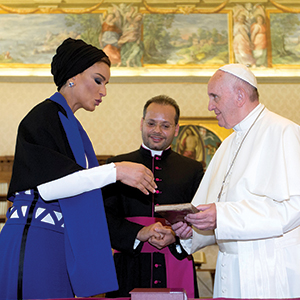The German Bundestag’s resolution to confirm the Ottoman Empire’s killings of Armenians as “genocide” was “important and commendable”, the president of the German Bishops’ Conference, Cardinal Reinhard Marx, said after the almost unanimous decision was announced last week, writes Christa Pongratz-Lippitt. Speaking in Bonn, he said honesty demanded that the 1915-1917 “systematic policy of killings and destruction” be declared genocide.
“The German Bundestag has concerned itself with the terrible events which killed hundreds of thousands of people at the time of the Young Turk government in the Ottoman Empire. Qualifying the killings of Armenians and other ethnic groups as ‘genocide’ has been and still is a highly controversial subject,” Marx said. Defining what happened as genocide was understandably a major concern for the victims’ descendants, he pointed out. Honesty therefore demanded there should be no doubt that the “‘Great Crime’ as the Armenians call it” was not about wartime excesses but was a systematic policy of destruction, that is genocide, he explained.
In view of their own history in the first half of the twentieth century, the Germans were the “least qualified to teach other nations”, he acknowledged. The reason why the Bundestag had concerned itself with the massacres was because the German Reich, which was the Ottoman Empire’s ally in the First World War, had precise knowledge of the events at the time but did nothing to influence Constantinople. “This cold indifference towards the fate of the Armenians is still a cause for shame for us Germans today,” Marx said.
Looking to the past must not lead to accusing other countries but “be an opening for cooperation in the future”, Marx said. It was now crucial to promote dialogue and reconciliation between Turkey and Armenia. “If our country can contribute here, we Germans should be on hand – in friendship with both peoples,” Marx said.
Pope Francis is to make a three-day visit to Armenia on 24-26 June. On 25 June, he will visit Tsitsernakaberd, the Armenian Genocide Memorial Complex and Museum in the capital, Yerevan.
09 June 2016, The Tablet
Marx commends Bundestag genocide ruling
 Loading ...
Loading ...
Get Instant Access
Subscribe to The Tablet for just £7.99
Subscribe today to take advantage of our introductory offers and enjoy 30 days' access for just £7.99

